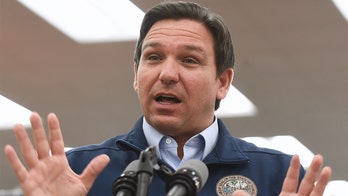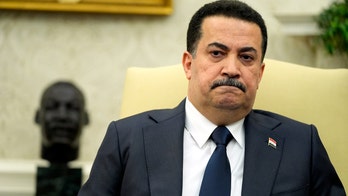The 2012 election is expected to break fundraising records, with some estimates putting President Obama raising upwards of $1 billion -- which brings into focus the creative and tricky lines the Obama campaign has to walk to bring in cash.
President Obama’s 2012 campaign is launching a “Speakers Series,” starting Thursday evening with a fundraiser headlined by former White House Chief of Staff and current Chicago Mayor Rahm Emanuel.
For $5,000 a year, a donor can get five events with Obama insiders, or just one at a $1,000 a pop.
A Democratic official also tells Fox News that the list of speakers ranges from 2012 campaign officials, to mayors and athletes and some current administration officials like White House Senior Advisers Valerie Jarrett and David Plouffe.
It’s the later group, current White House staffers, that tip-toes a fine political line.
The White House says officials will be using their personal time and there’s nothing inappropriate going on. They also point to other administrations doing the same thing.
"As has been the consistent practice for prior administrations, officials in their private time can and do engage in political work on behalf of the president. Administration officials are also permitted to speak at, attend and be the featured guest at political events, including fundraisers, but they cannot, and do not, personally solicit contributions," said White House Spokesman Eric Schultz.
To some though, the line is too fine and it’s seen as buying face time to promote a cause.
"Let's call it what it is -- selling access. Every administration does it, but it's equally wrong, whether it's a Democratic or Republican administration," said University of Virginia’s Director of Politics Larry Sabato.
He adds, while they can’t directly solicit money, there’s no disillusionment about what is happening.
“They know it's being collected, that's why they're there, and that's why this is an access situation and it deserves very close scrutiny -- who's there, what are their legislative and executive interests, what are they trying to get? Some them are just there because they support the president, but some of them are there because they have specific interests, and they need certain key administration officials on their side," Sabato said.
Sabato says the practice has been going on since the Nixon administration.
It’s something as recent as 2006 that the Bush White House got slammed for. Former Bush White House Press Secretary Tony Snow headlined about 16 fundraising events for congressional candidates.
At a White House briefing in November of 2006, he described his role like this, “I mean, you've seen plenty of tapes of these -- is that I give a positive message about what the president's doing and what it promises for a better America. And that's what I continue to do,” Snow said.
The Obama campaign made the decision to locate its headquarters in Chicago, an attempt to give an outside-the-beltway feel.
He’s the first president to have an out-of-Washington re-election office in decades.
Another money matter – courting Wall Street cash -- is also posing a tricky situation: whether Obama is getting too close to Wall Street executives and angering his liberal base.
"I did not run for office to be helping out a bunch of, you know, fat-cat bankers on Wall Street," Obama said in a “60 Minutes” interview in December 2009.
That comment, on top of the president signing sweeping Wall Street reform legislation exactly a year ago, brought huge support from his base.
“When he calls Wall Street bankers fat cats, then his base cheers, so you'll see him constantly trying to shift back and forth and keep wall street happy at one point and his base happy at another point,” said Jim Moorhead, current crisis advisor at Steptoe & Johnson, LLP and also a former Goldman Sachs investment banker.
One nod to Wall Street that pleased executives was the naming of former JP Morgan Bank Senior Executive Bill Daley to be Obama’s chief of staff.
There was also a secret meeting at the White House with Wall Street executives a couple weeks before he formally launched his re-election bid. While the administration says the meeting was just about job ideas, these moves cause consumer advocates to give a mixed review of Obama’s performance with Wall Street. They were pleased when he appointed bank critic Richard Cordray to head the new consumer bureau on Monday, but other courtship of executives makes them uneasy.
“I'm happy for our president, for any member of congress to speak with member of the financial industry as does Public Citizen, but we are nervous that conversations can sometimes indicate friendships and alliances that we think is misplaced,” said Bart Naylor of Public Citizen, a consumer advocacy group.
Experts note that while Wall Street cash is helpful, there’s plenty of money to go around.
“What amazes me about American politics is just how much money is actually out there waiting to be tapped. If you get shut out in one quarter, one sector, no matter how big it is, you can make it up in other quarters and other sectors,” said Sabato.




